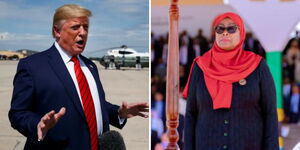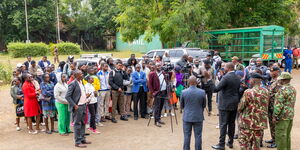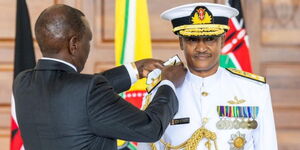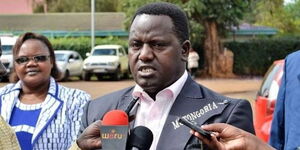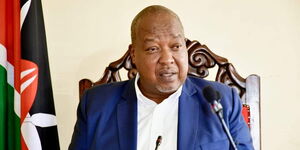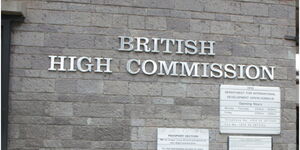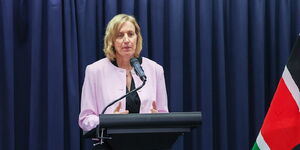The Inspector General of Police, Douglas Kanja, has said that it is unclear whether the Kenyan police leading the Multinational Security Support Mission (MSS) in Haiti will remain there or not.
Kanja's statement follows the establishment of a new Gang Suppression Force (GSF) by the United Nations Security Council Resolution.
Speaking on Wednesday, October 1, Kanja claimed that the country has yet to receive formal information from the National Security Council (NSC) on whether the more than 800 Kenyan officers in Haiti will support the new mission.
“We are still waiting for more information on the mission, and after that, we shall know what to do. Such directions are given by the National Security Council, so let us wait,” Kanja said.
Welcoming the establishment of the GSF mission, which will replace the Kenya-led MSS mission, the Ministry of Foreign Affairs, in a statement on Wednesday, asserted that the GSF will play a key role in addressing the challenges the MSS has experienced, such as underfunding, insufficient personnel, and limited operational capacity.
The GSF will consist of over 5,500 security personnel. It will work in close coordination with the Haitian National Police (HNP) and the Haitian armed forces to conduct intelligence-led operations to neutralise gangs, provide security for critical infrastructure, and support humanitarian access. The MSS mission in Haiti started on January 1, 2024.
"As President William Ruto underscored at the 80th Session of the United Nations General Assembly, the challenges experienced under the MSS highlighted the urgent need for a stronger, more predictable framework. The GSF now provides that foundation," the ministry stated.
"Kenya's decision to deploy first was guided by principle, not prestige. Our engagement in Haiti has always been anchored in the protection of vulnerable communities, the upholding of the United Nations Charter, and our commitment to global peace and security in line with international obligations," it added.
Unlike the MSS, the GSF mission, which will run for an initial 12 months, will have a stronger mandate, predictable resources, and broad international support, ensuring Kenyan troops receive the necessary boost, according to the ministry.
Acknowledging the fundamental role the MSS has played in restoring peace and enabling the Haitian Government to regain control of critical infrastructure, which were once under gang control, the ministry thanked other countries that took part and supported the mission, including Canada, France, Japan, the United States, Algeria, El Salvador, Jamaica, and Barbados
"The Haiti mission affirms that Africa is not a bystander in global affairs. Kenya's leadership demonstrates that African states can mobilise and guide the international community in times of crisis," the statement read.
This further underscores the urgency of granting Africa permanent representation on the United Nations Security Council. At home, Kenyans can be assured that our engagement in Haiti has been matched by careful diplomacy to secure responsibility-sharing and safeguard both our personnel and our national interest," it added.
The new resolution guaranteed that the new mission would receive direct support from the UN, with the establishment of a UN Support Office in Haiti (UNSOH).
This office will have the responsibility of providing logistical and operational support, including rations, medical care, transportation, strategic communications, and troop rotation to the troops.
According to the resolution, the new force will continue to depend on voluntary personnel and financial contributions, but its leadership framework will change.


